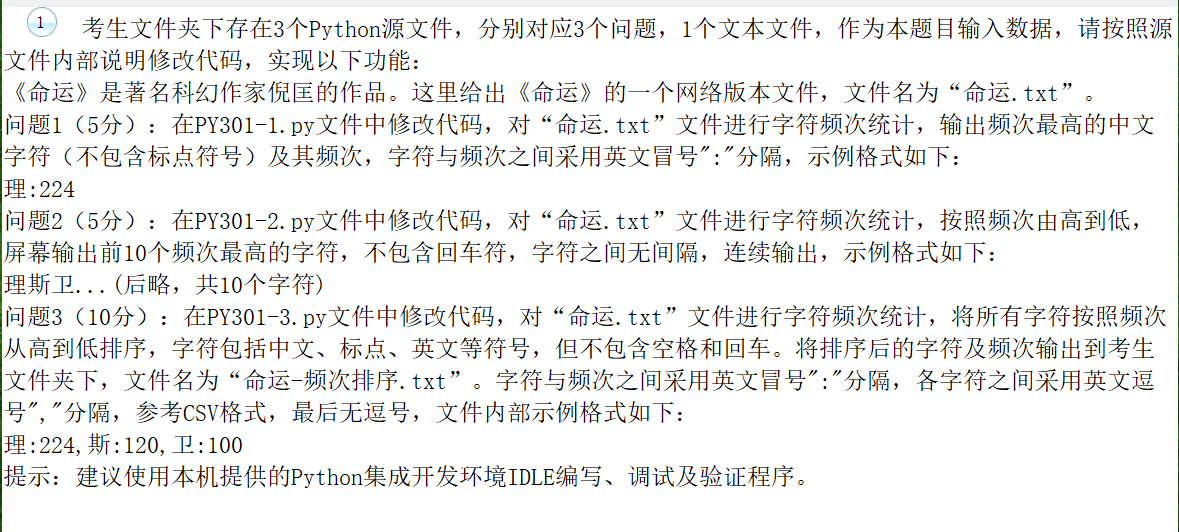
问题(1):
txt=open("命运.txt","r").read()
for ch in",。?:":
txt=txt.replace(ch,"")
d = {}
for ch in txt:
d[ch]=d.get(ch,0)+1
ls=list(d.items())
ls.sort(key=lambda x:x[1],reverse=True)
a,b=ls[0]
print("{}:{}".format(a,b))
问题(2):
txt=open("命运.txt","r").read()
for ch in '
':
txt=txt.replace(ch,"")
d = {}
for ch in txt:
d[ch]=d.get(ch,0)+1
ls = list(d.items())
ls.sort(key=lambda x:x[1], reverse=True) # 此行可以按照词频由高到低排序
for i in range(10):
print(str(ls[i])[2],end="")
问题(3):
txt=open("命运.txt","r").read()
for ch in '
':
txt=txt.replace(ch,"")
d = {}
for ch in txt:
d[ch]=d.get(ch,0)+1
ls = list(d.items())
ls.sort(key=lambda x:x[1], reverse=True) # 此行可以按照词频由高到低排序
string=""
for i in range(len(ls)):
s=str(ls[i]).strip("()")
string=string+s[1]+':'+s[5:]+','
f=open("命运-频次排序.txt","w")
f.write(string)
f.close()